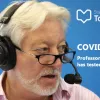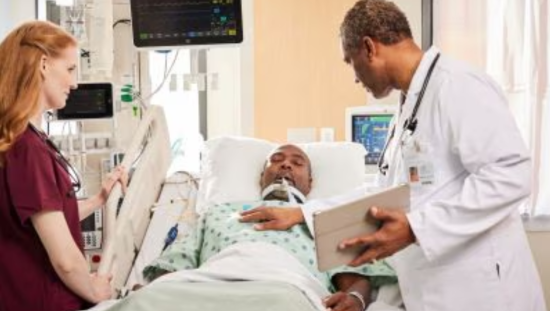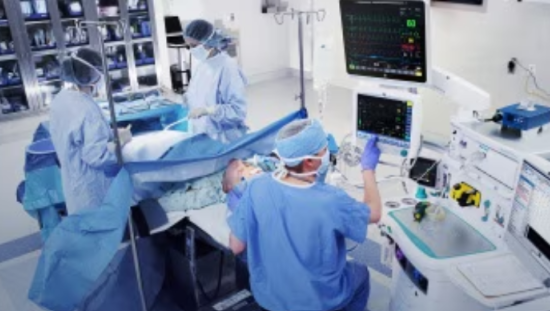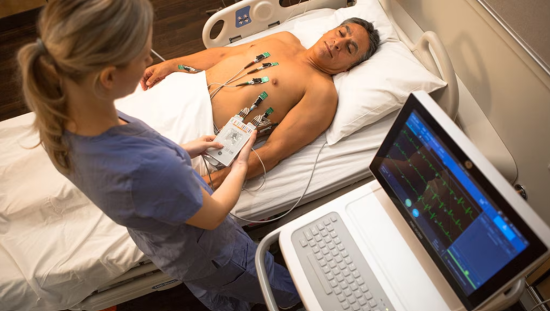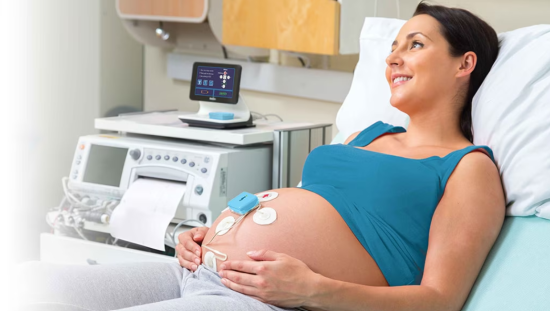#15. How Widespread is Enhanced Recovery After Surgery?
How widespread are enhanced recovery principles? Are patients living the drinking, eating and mobilizing early on and so “living the (drink, eat, mobilize) dream?”.
Show Notes
Transcript
Speakers
How widespread is enhanced recovery after surgery and, perhaps more importantly, how widespread are its principles? Are patients living the drinking, eating and mobilising early on and so “living the (drink, eat, mobilise) dream?”.
This podcast was recorded by TopMedTalk. If you would like to listen to this podcast from the TopMedTalk platform click here
Top Med Talk.
Nick Magerrison: Nick Magerrison here. This piece was recorded at last year's 21st Current Controversies in Anesthesia and Perioperative Medicine in SIAA Autumn Congress at the Dingle Skellig Hotel in Ireland. Have a listen.
Katie: I'm delighted to welcome Desiree, who has come to us from Kentucky. Desiree is a nurse anesthetist in the Northern [inaudible 00:00:25], uh, healthcare system. And there is team leader for enhanced recovery after surgery. She is also an elected national representative in the enhanced recovery setting, and a contributor at high level to the, uh, USA branch of evidence-based perioperative medicine. Desiree is gonna speak with us today and educate us with a contribution from Profession Mythen about enhanced recovery after surgery, which has implications for all of us who look after patients. Thank you.
Desiree Chappell: Thank you to the Dingle crew; Monty, Mike, Kate and Jan for the invitation, and bringing me into the Dingle family, um, the meeting, the setting, everything about it. And I also want to just acknowledge that this has been an extremely tough year for the Dingle family because of, um, the loss of Shevaughn. And I know some of you guys are just here today or have been popping in and out, and I think you guys have done a wonderful job honoring her and her memory this year. And for Kay, who is, I think she's probably still out manning the desk, everyone give her like, a huge hug and a thank you for taking over and keeping Dingle and this meeting part of our lives. So I just want to say that. Katie, thank you for the introduction. It's changed a little bit. I was full time practicing CRNA in Louisville, Kentucky until last year when I decided to take the jump off a cliff, really, some people would say, into the world of podcasting, and trying to spread the word about perioperative medicine and enhance the coverage specifically through new forms of communication.
And so Monty had the foresight, I guess, to bring me into the Top Med Talk family which we've kind of talked a little bit about, and we'll talk about it in just a moment. But um, I decided that through my experience with enhanced recovery, I'm full disclosure, on the board of the American society for enhanced recovery, also EDPOM USA. Uh, it was through all that that I decided we needed to start sharing this information in different ways. For our session right now, I'm gonna do my session as like, a podcast, a live podcast, what Monty and I would normally do, and have a discussion about it. We've seen lots of slides, I have some slides, um, and everyone's done a great presentation. But um, we're just gonna mix it up for you a little bit today. So I'm gonna invite editor in chief at Top Med Talk, Professor Monty Mythen up to the stage.
So uh, the topic we wanted to talk about was enhanced recovery updates. We've heard a ton about it, the three papers, um, that we heard this morning talked about it throughout the entire meeting. Monty, thank you so much for joining me. I know it's a last minute to bring you up here, but I'm wanting to change it up a little bit. So one question I wanted to ask you or talk to you about before we get started is, what are you thinking about, um, the Dingle meeting so far?
Monty Mythen: Oh it's been wonderful. It's been challenging because of the reasons that you stated, but the fact that the local community here and everyone that comes along has been so supportive, I think it's been wonderful. And I don't think that you can knock the quality of the content here.
Desiree Chappell:: No, it's been great.
Monty Mythen: It's world class, so let's keep it going.
Desiree Chappell: Yeah, yeah. So Top Med Talk.
Monty Mythen: Well, should we explain a little more about that?
Desiree Chappell: Yeah.
Monty Mythen: Why don't we? So we're, we're, we commonly do this now around the world with different people. We do basically what looks like chat shows or interviews to draw more information out of people. And uh, we record, uh, lectures off the stage in about 700 podcasts. So we send one out every day.
Desiree Chappell: We do.
Monty Mythen: We do. And if we put into our, well, you said, does it cost anything?
Desiree Chappell: Oh, it's completely, no, it's completely free to everyone.
Monty Mythen: So completely free. So if you put top med talk, T-O-P M-E-D T-A-L-K dot com, you'll get into our website. And in there, I encourage you to subscribe. Why, why if there's no money involved, why subscribe?
Desiree Chappell: Well, if you subscribe, you'll get, um, podcasts delivered to you every day, and um, you're, you're part of the Top Med Talk family.
Monty Mythen: And if you, if you download the app, the app is very user friendly and it has a great search engine in it. So this morning, they were doing a little bit of prep, because this looks spontaneous but we do prep a little bit. Um, if you put enhanced recovery in, you get over 100 independent podcasts about enhanced recovery, uh, including one of your favorite interviews with
Desiree Chappell: Henrik Keller. That's the (laughs), and actually, well, Angela Bader. Uh, some of the greats. You. (laughs).
Monty Mythen: So who, who, what's your favorite podcast of all time?
Desiree Chappell: It's probably Henrik.
Monty Mythen: Henrik Keller.
Desiree Chappell: Yeah, Henrik Keller.
Monty Mythen: So we do have in there, for example, we've got Bill Clinton.
Desiree Chappell: We do.
Monty Mythen: Talking about hand washing. Didn't actually interview him, but were in the room, but we were allowed to-
Desiree Chappell: (laughs) We recorded him.
Monty Mythen: We were allowed to record it with permission. We were in a relatively small group in patient safety, and he spoke passionately about the fact that his mother's a [inaudible 00:05:09]
Desiree Chappell: Nursing, he said.
Monty Mythen: And uh, and how important hand washing is. I didn't see any evidence of it, but...
Desiree Chappell: No. (laughs)
Monty Mythen: So we should probably get onto our subject.
Desiree Chappell: We should, yes. So um, and it may feel like a shameless plug, but honestly it's, it's a huge, um, wealth of information, information. So, all right, enhanced recovery. Monty, uh, we talked about this study earlier in the year, the power study, and um, one of the things that I think is great is that it shows that enhanced recovery is still, it's working.
Monty Mythen: Yeah, and I think that there seems to be, um, global agreement now that enhanced recovery is the modern way of caring after patients perioperatively. Now for some people, it's been that way forever. So immediate post-operative mobilization and immediate post-operative feeding has been in certain parts of the world for centuries. It appears to be that the Brits and the Americans got together and suppressed that idea coming out of central Europe and the far east ages ago to create this modern "ish" paradigm of leaving people in bed and somehow being starved and immobilized enabled recovery. That was all made up by, uh, us if you see what I mean. Shame on us and we're now unpicking all of that. I think the only push back from people is some people d-, say we don't do enhanced recovery, we just do something that looks exactly like enhanced recovery, but we like to call it "Kentucky fast track," or something different, because we're not doing enhanced recovery. But, but the principles, the immediate post-operative drinking, eating, mobilizing, seemed to run through all of those systems and seemed to produce enormous benefit. So just getting people to live the dream, to keep mobilized seems to be the secret.
Desiree Chappell: And it's shown this works but the, the compliance is the big thing.
Monty Mythen: And that's what this paper here, this is number one of a whole series of papers. This is a longitudinal cohort study as I remember. And it one again points out that if you don't have an enhanced recovery program, you're typically doing about a 60% of the enhanced recovery elements. If you do have an enhanced recovery program, you need to do about 80% compliance levels to get the return on the investment. So if you print the protocols and you print the t-shirts but you don't walk the walk, you just wasted money. If you, if you get the compliance levels, you get the return on investment. Now the big known unknown there, sorry to bring that one up again, is whether it's the compliance or the elements that makes the difference, or, or whether it is that effective teams comply. So whether it's a, just a surrogate measure for being good.
Desiree Chappell: I really feel like it is starting to spread, and we get a lot of feedback actually, from people all over the world talking to us about what their experiences have been in, in countries that I never would have ever thought about. Um, and this particular one was from a woman from Saudi Arabia, Fatima, and was telling us that she was over in the UK and US to do a, uh, fellowship for learning more about enhanced recovery. So I think the goal of spread, it's starting to make it out.
Monty Mythen: Uh, but I, as I said earlier, I think that every healthcare system in the world now, either by calling it enhanced recovery or fast track or just emphasizing multi-modal analgesia and you know, more careful management in pursuing [inaudible 00:08:16] mobilized, I think everyone's in now. I don't know, if you're not gonna do it, I think you're running out of places to hide, basically. And I think the insurers in the US are now starting to say, "We only want to buy enhanced recovery programs. We're not gonna buy that other stuff." Because as one of your surgical colleagues in the US said recently, "Why would you pay for unenhanced recovery?"
Desiree Chappell: Right. (laughs)
Monty Mythen: Why would you pay for a slower recovery and greater misery and complications.
Desiree Chappell: Yeah, and I, I think patients are starting to pick up on it too, and, and calling.
Monty Mythen: Yeah, you have adverts in, I think actually outside Vicky's town I drove past an advert bragging about enhanced recovery. So it's gonna be in a magazine in the back of an airplane seat soon. Desiree Chappell: We can only hope. Um, well, one of the things I think is interesting when we talk about the spread of information, and people laugh because I put social media on there, but um, and I think that is Snapchat in the middle. I'm not really for sure what that is. Anyway, uh, uh, I think the sharing of information is really interesting.
Monty Mythen: That's a good pub quiz question for the over 50's.
Desiree Chappell: It is. The little yellow thing in the middle. What is... You youngsters in the back will know that.
Monty Mythen: Ghostbusters?
Desiree Chappell: (laughs) Yeah.
Monty Mythen: I recognize five I think.
Desiree Chappell: Yeah, well yeah, we're on all those actually. But um, one of the things, uh, and we, we talk about this because you said, if there's a new paper coming out, um, and it's really, it's great, it's big like, it's gonna be, you know, within days or a month to spread. Right?
Monty Mythen: Yeah, I mean, I think our trainees know about the, the latest news within seconds now.
Desiree Chappell: Right, but I, I think they're actually getting that on social media, Monty.
Monty Mythen: Yeah, I, absolutely. But I've read it also from the point of view, as it's spoken on the stage.
Desiree Chappell: Yeah.
Monty Mythen: The youngsters are sharing it straight away. They're skipping the sort of, publication stage, and
Desiree Chappell: But I think it's great though, um, especially in this global situation that we're in, that we're trying to communicate across the world. And, and my personal facility, I work in a smaller community facility, and word doesn't spread that fast, and now we have social media to do that. And I think there are groups all over the world that are posting really important information, important papers, what they're doing to spread the word about, you know, in p-perioperative medicine and enhanced recovery, that it's not just sharing of information, it's actually having conversations and connections and contacts across the world, that you can have all of this in, you know, completely different places, and talk about the things that are important.
Monty Mythen: I mean, I think people are sharing best practice. They're sharing their results.
Desiree Chappell: Yeah.
Monty Mythen: Less, less obsessed with the idea of the evidence-based being entirely dependent on the large prospect of randomized controlled trials.
Desiree Chappell: Spiritual stuff.
Monty Mythen: This was referred to yesterday, I think, in the key note lecture. The, the little bit of work that I've done at government level in the UK, they have a, a five point evidence construct. And number five is the things that we obsess about, is the prospective randomized control trial published in JAMA ADJA.
Desiree Chappell: Yeah.
Monty Mythen: From their perspective as a government payer, they say "Go, go tell me who's got the best results. Find out what they're doing. Ask people to copy that, and if they copy it, do they get the same results. Ask the clever people if they think the biology makes sense, getting some sort of triangulation. Uh, ask the big societies and the collective groups if they think it's a good idea. And if you could knock out a trial eventually, that would be great."
Desiree Chappell: Yeah.
Monty Mythen: "But we can't wait 15 years to get on with it." And, and that's that kind of, you know, and we've got, and Chris Snowden's getting it right first time yesterday, as well. Look around and see who's got the best results, and just ask them what they're doing.
Desiree Chappell: What they're doing. Yeah.
Monty Mythen: But beware of unintended consequences.
Desiree Chappell: That's-
Monty Mythen: Which is referred to in there.
Desiree Chappell: Yeah it was, yeah. Um, so when I say, um, enhanced recovery is really spreading to other organizations, professional organizations I think are the biggest things. Both of us have been speaking at nursing, um, at least in the US, nursing organizations that which just two or three years ago had never even had anything about enhanced recovery in their, um, professional meeting, their, uh, organizational meetings.
Monty Mythen: Well whether you, whether you call it enhanced recovery or not, that, some people do have antibodies to-
Desiree Chappell: Yeah, yeah that's true.
Monty Mythen: ... To this type of thing.
Desiree Chappell: (laughs)
Monty Mythen: The, um, let's pay meticulous attention to everything with regards of preparation, delivery of care, and in particular, getting people going as quickly as possible afterwards in their best interest. That's, that has spread to, it's revitalized a lot of people, because it's ch-changed the role of the OT, the PT, the physiotherapist, it's reengaged the dieticians. You know, we've sort of dragged out the fact that our preoperative nutrition is pretty poor. And the return on that investment is great. You know, the prehabilitation idea is growing very rapidly. There was a, what was the prediction? That it's gonna be the word of the year next year?
Desiree Chappell: Word of the year. Yeah.
Monty Mythen: Yeah.
Desiree Chappell: When, when "prehabilitation" doesn't autocorrect to "rehabilitation," that's something.
Monty Mythen: It's going to be it. It's going to be, the absolute test is when you put "prehabilitation" in, it doesn't autocorrect on the auto spell, then it's arrived. And, and it's just starting to not autocorrect the whole time. So...
Desiree Chappell: We must be geeks though if we're texting that to one another. (laughs)
Monty Mythen: Well, there's a world
Desiree Chappell: No, it's cool. We're the cool people.
Monty Mythen: There's a World Prehabilitation Organization now.
Desiree Chappell: It is, yeah. Yeah.
Monty Mythen: So it was a meeting we had in London which was the third gathering. The first one was a small room of people, the third one was sold out to 700 people. And next year it's gonna be bigger and bigger, and...
Desiree Chappell: Yeah, super cool. One thing I think is, I put pharmacy on there, um, and I know whoever started an enhanced recovery program or anything like it, or just trying to get a new drug on formulary, pharmacy is like, you know, uh, dragging their feet all the time. And so I think just recently within the last couple years, again in the US, that they're starting to talk about it at their meetings, and that's really how we're gonna get spread and adoption within there.
Monty Mythen: And, and I think, uh, George was just referring to this, the unintended consequence of the so-called opioid crisis in the pharmacy around enhanced recovery. Because prescribing things is relatively easy. For some people's enhanced recoveries, everyone's gonna get gabapentin and everyone's gonna have, get non-steroidals, not adjusted for age or creatinine. See, there are unintended consequences of believing that there's a, there's a, a single recipe that equates to a drug, uh, pattern profile. And I think we've seen quite a lot of the unintended harm from, you know, everyone's got to get a non-steroidal. But they're, you know, they're old, they're frail, their creatinine's elevated. You know, steady unwell.
Desiree Chappell: Yeah. Well, it's uh, more cause to really bring them into the conversation, because we, I mean, even though we do, we know those things, I think that having that conversation about it's gonna only improve that.
Monty Mythen: [inaudible 00:14:42], because government's interesting. So uh, you know, the United Kingdom made a conscious effort when it was really on its knees financially, to go for the National Spread and Adoption of Enhanced Recovery, which seemed to go extremely well with a high return on investment. But it's interesting if you saw Chris Snowden's presentation, how much that slipped back, um, since 2010 or so, because we've had extreme austerity measures, which has included, "Let's save as much money as possible" which is included not collecting and sharing the data, which has allowed people to revert to the norm which is, "Eh, all that enhanced recovery nonsense doesn't work. I'm gonna go back to doing what I used to do, because now I can say I'm right."
Desiree Chappell: Yeah.
Monty Mythen: "So I don't know what happens to my patients and no one's sharing the data, so I can go 'I'm feeling good about myself.'"
Desiree Chappell: Yeah. No, totally. And I mean, in the US, I mean Vicky, you talked about it yesterday, you know, it's plus or minus. I think we're starting to have conversations, but uh, we're getting there. But I think it, you know, it's something we need to definitely, um, work on. Um, so I, you know, I don't know, you hear still a lot about colo-, enhanced for colorectal, but I feel like especially in the US, we're really expanding, starting to expand rapidly, um, into different, um, service lines. And I mean, we've heard about obstetrics, we're probably gonna hear about, a little bit about it more today. You know, spine, all the different ones, and cardiac is kind of a big one coming trough the US right now.
Monty Mythen: So Kaiser Permanente for example, I don't know if everyone's familiar with it, which is a sort of dominant, uh, insuring health care providing group, mainly out of Canada, uh, sorry, out of California. Their headquarters, they published a couple of articles where they did a colorectal pilot, a fractured neck of femur pilot, and they had not only reduced length of stay and major complications, they decreased mortality. So when I went to visit their headquarters at their invitation, the, they told me their mission is to go total ERAS.
Desiree Chappell: ERAS for all?
Monty Mythen: They didn't call it, they call it something else, because you know, you couldn't, you got to make up your own name. But uh, Kaiser Permanente fast track special that they're going to have that philosophy, they say, through all of their institutions. But not just for elective surgery, for emergency surgery and for common medical conditions.
Desiree Chappell: Oh, not even
Monty Mythen: So it goes to say, if you come in with a pneumonia for example, why should you not have the same principles. And it was, why wouldn't you want to get
Desiree Chappell: Nutrition, yeah.
Monty Mythen: ... Drinking, eating, mobilizing and home as quickly as possible rather than put in bed and shackled to it?
Desiree Chappell: Yeah, yeah. That's interesting.
Monty Mythen: So we'll see how that goes.
Desiree Chappell: Enhanced recovery after c-caesarian.
Monty Mythen: Yeah. So we in the UK when we got to the end of our National Enhanced Recovery Program, someone said "Well what about the C-sections?" And we said, "Well don't they all go home as quickly as possible?" They said "No, they're the biggest bed user in the UK."
Desiree Chappell: In US as well, yeah.
Monty Mythen: And it's not, you, you know what I mean by the biggest bed user? Of elective surgical procedures, caesarian patients occupy the greatest number of bed days.
Desiree Chappell: Yes.
Monty Mythen: And the length of stay is one day in very many places, but it's two in a lot of places and it's three in some places.
Desiree Chappell: Yeah.
Monty Mythen: Now as I understand in the USA, which I found to be shocking, it's by law you're allowed to stay in four days.
Desiree Chappell: Mm-hmm. You are.
Monty Mythen: And that's not unusual, is it?
Desiree Chappell: No, it's not.
Monty Mythen: It's a massive bed occupier, but also, do you wanna be in, did you wanna be in hospital for
Desiree Chappell: Well, there
Monty Mythen: Sorry, I'm putting it [inaudible 00:18:03].
Desiree Chappell: ... Might be a chance that I wanted to stay an extra one or two days as somebody else is watching my kid. But I mean, you know, (laughs).
Monty Mythen: I've given away, well you've spoke, spoken about it in the podcast.
Desiree Chappell: I have talked about it on podcast a lot.
Monty Mythen: The, let's ignore whether people wanna go home quickly.
Desiree Chappell: Yeah.
Monty Mythen: All mums would appear to want to be up and about and able to look after babies as quickly as possible.
Desiree Chappell: Sure, yes. Absolutely.
Monty Mythen: So that's a big, and that's happening very rapidly in the US now as well.
Desiree Chappell: P-Pain control's the big thing on that one. And if you can get pain under control that's good. So there are new guidelines that are coming out. This is one we've talked about quite a bit this year on Top Med Talk, we've seen a lot with, um, the cardiac guidelines from the ERAS Cardiac Group. And we actually did a, um, an event with them earlier in the year talking about what, uh, their recommendations are. So when we look through this, Monty, we're kind of counting all the enhanced recovery principles and things that are unique to cardiac, and versus what we're [inaudible 00:18:59].
Monty Mythen: Yeah, I mean, as you might expect there's, well one is, back up a little bit. The reason we didn't do cardiac when we did the UK program, I guess it's very similar in Ireland is, we have relatively few cardiac centers. So when we look at, and they almost all trained each other. So when we looked at our cardiac results in the UK, our length of stay was plus or minus a day for the, for the major procedures. When we looked at colorectal, it was a three fold difference. It was six days to more than 18 days. So we had this sort of huge scattergram. With cardiac, it looked like someone had dipped their thumb in some ink and ran it down the sort of day six. It was a really tight cluster, because there aren't many sectors, and you go into any of them and care looks pretty much the same. Now I can see the motivation in the US.
Desiree Chappell: It's not like that.
Monty Mythen: Because you do a lot of cardiac surgeries. And your outcomes are all over the shop. I mean, you're, you're in the colorectal space for medicine.
Desiree Chappell: We're, it's exactly. Yeah.
Monty Mythen: So, so I can understand why they had the drive for it. Now if you look at the guidelines, there's about three things that are cardiac-ish.
Desiree Chappell: Yeah.
Monty Mythen: You know, a bit of, you know, coagulation stuff and a bit of how to look after the wound stuff. But almost all the rest of it could have been colorectal.
Desiree Chappell: Mm-hmm.
Monty Mythen:
Or orthopedic. It says "Multi-modal analgesia, get them prepared properly, get them drinking easy mobilizing." And also, they've sort of pushed out into the perioperative medicine space, they're saying, you know, fix the anemia, and they've got the P-word in there: prehabilitation.
Desiree Chappell: (laughs)
Monty Mythen: So it's apparently making, uh, rapid changes in centers. Also interestingly, they focus quite a lot on the interoperative care package.
Desiree Chappell: Yeah they do.
Monty Mythen: Because something's gone awry in cardiac surgery in the last decade or so, this being this obsession in some places with high volume ultra filtration to make the blood look thicker at the end of bypass. It's completely out of control, and some centers have an AKI rate of 40%.
Desiree Chappell: Yeah.
Monty Mythen: Whereas others say they've eliminated post-cardiac AKI.
Desiree Chappell: [inaudible 00:20:57], yeah.
Monty Mythen: So that's a very, very hot, uh, area at the moment is to say, get a, get a grip back on that craziness that's happening.
Desiree Chappell: Yeah it is.
Monty Mythen: You know, it, it, during the case, just to make the blood look thick for a few hours.
Desiree Chappell: It's ridiculous. I mean, I've lived that myself, uh, right now, in trying to change the dogma, it's been very difficult. Um, I will say though, for enhanced recovery program adoption in the US, for, I mean, they're kicking it. Like they are killing it, because they, like it's this huge marketing campaign. You see them all over social media, you see them in every organization, you know, doctors, nurses, whatever, and they're, I mean they're doing a huge marketing campaign, and that's part of it. One of the guys in the free papers was talking about that earlier.
Monty Mythen: But the, the training courses that, I've been to one of them, we went to one in Wake Forest.
Desiree Chappell: Mm-hmm.
Monty Mythen: They brought together teams where the surgeon has brought with them the key players in the team, and they've got together, you know, 10, 15 teams in a room this size. And in a day, they've shared best practice. And then they've agreed to go away and do something about it. And they're, that means that they're spreading it virally, uh, w-with a high level of "Let's not reinvent the wheel every time we share the love." You know, "Let's do it truly viral, let's get this viral to, this virus to be a pandemic."
Desiree Chappell: (laughs) Where's Dane Martin when we need him? Uh, uh, so, um, so the, the Preoperative Quality Initiative, Monty, I always talk about. Any time we talk about enhanced recovery, I always bring up this group. And of course, you are a part of that, and Mike and the team here, but um, I really think that they have some great recommendations. And I don't know if everybody understands what POQI is, so...
Monty Mythen: Well, P-POQI, Perioperative Quality Initiative was set up by five founding directors. Uh, it's based, it's modeled on ADQI, A-D-Q-I, which is the, was the Acute Dialysis Quality Initiative and is now the Acute Disease Quality Initiative. And that's been running for about 20 years now. And it uh, produced guidelines and criteria like the rightful criteria. So the methodology that's used is slightly unusual, it's a modified Delphi process, where you pick off some subject areas, so the most recent one we've done which won't be published yet, is about post-operative acute kidney injury, um, people from around the globe, uh, with, uh, different interests and expertise, have a run-in period of a few months where they identify what they believe is the most pertinent literature.
Monty Mythen: And then picking off about three subject areas, they get together on a single plenary session of about 20 to 30 people, they present their initial findings, that gets challenged by the group, then they break out over two days multiple times, until they, until they reach a consensus, and then they produce these guidelines that are quite often evidence based, but they also have grade in it, and as, and you know, level proper grade process, distillation of the literature. But they get off the fence with regards to making consensus recommendations even when you can't necessarily find a lot of evidence to support it. You say "Collectively this is what we think, what people think is the best thing happening in this space at the moment." It's all free, it's all open source. Um, I think we're up to the seventh or the eighth, so we're up to, you know, 15 or so publications here.
Desiree Chappell: Yeah.
Monty Mythen: POQI.hq I think it is. Dot org will get you there as well.
Desiree Chappell: Yeah, it's-
Monty Mythen: POQI.
Desiree Chappell: ... It really is a great resource. And the thing that I love that you guys have been doing is, doing joint consensus statements. So there's, there is, what, the American Society for Enhanced Recovery, so it's a, it is a great, um, opportunity.
Monty Mythen: The one, the one we just did is, is A-D-Q-I with P-O-Q-I, because it is a post-operative acute kidney injury.
Desiree Chappell: Acute.
Monty Mythen: Transitioning into chronic kidney injury.
Desiree Chappell: Mm-hmm.
Monty Mythen: No revelations in it at all, but that's where we're going.
Desiree Chappell: (laughs) That's what I was gonna say, what came out of that?
Monty Mythen: So don't, don't poison patients and avoid hypoxia and hypotension, but when you're avoiding hypotension, don't just squeeze. You know, don't, be smart.
Desiree Chappell: The catch to enhanced recovery is not that the data is not there to support it, because I think it is, but it's the change management piece.
Monty Mythen: A-Absolutely. My, as I said, I keep harping on about my UK National experience. They gave us relatively little money to run the program, but they did give us the data, they gave us analysts, they gave us implementation scientists, and they gave us change management experts. And if you wanna, I would invest in change management experts even if it's just for a few weeks.
Desiree Chappell: Yup.
Monty Mythen: People who can p-, kick but properly.
Desiree Chappell: Yeah.
Monty Mythen: So they don't care who you are or how allegedly important you are, if you've come here for a team game, one is turn up. If you don't turn up, your team has to go away. And two is listen, concentrate, go away, do something and come back. They're fantastic.
Desiree Chappell: That's good. So the last thing I said, so that's what we were talking about earlier is like, the implementation, science, all these things with the human factors, and this kind of ties it all in, because I found this on Twitter from the Periop Group at Manash in Australia. Um, they're doing like a humans factor, human factors course, and this is it, this is how you get change.
Monty Mythen: That's, that's the recurring theme I think. Uh, we had some presentations earlier in the week about enhanced recovery, downloading a recipe is not difficult, printing out the algorithms is not difficult, describing what you're gonna do, we're just really awkward people.
Desiree Chappell: Yeah.
Monty Mythen: We, we, the ethnography that's being written up about some of the large quality improvement initiatives, we're just awkward cusses, largely speaking.
Desiree Chappell: (laughs) That's exactly what it is.
Monty Mythen: We get into our room, we know better, we're gonna do our thing. You know?
Desiree Chappell: Yeah.
Monty Mythen: Don't tell me about my outcomes, I don't believe you. I, because they looked great when I left. Yeah.
Desiree Chappell: I guess we dropped them off.
Monty Mythen: That's the secret.
Desiree Chappell: Yup. Secret sauce.
Monty Mythen: To the human practitioner.
Desiree Chappell: All right, thank you guys so much for listening.
Monty Mythen: Thank you.
Top Med Talk.
Nick Margerrison: Thanks for downloading Top Med Talk. Don't forget to subscribe via your Podcatcher. Don't forget to check us out on social media, we're on Twitter, Facebook, LinkedIn and YouTube. And also, don't forget Top Med Talk is the broadcasting arm of EBPOM: Evidence Based Perioperative Medicine. We'd love you to find out more about that. If you check out EDPOM.org, you can find low prices on some of the conferences we're organizing around the world. Many of them are virtual and don't even involved you leaving your own home. Check out EBPOM.org now.
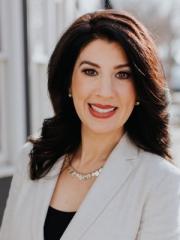
Desiree Chappell
MOM, CRNA and Host of The Roundtable Blog
Board of Directors, American Society of Enhanced Recovery (ASER). A passionate ambassador of Enhanced Recovery and Perioperative Care. Desiree is the creator of the popular Roundtable perioperative care blog: http://periopcareblog.com/
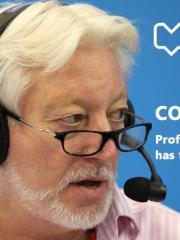
Prof. Monty Mythen
Co Founder and Editor In Chief of TopMedTalk
Monty is the Smiths Medical Professor of Anaesthesia and Critical Care at University College London and Adjunct Professor, Department of Anaesthesiology, Duke University, USA. Monty is also the founding Director of Evidence Based Perioperative Medicine International.


